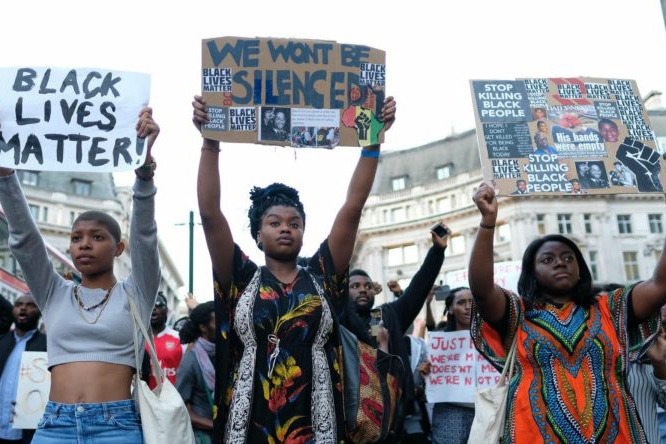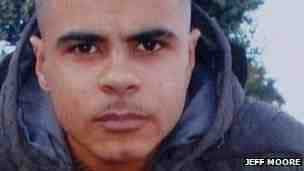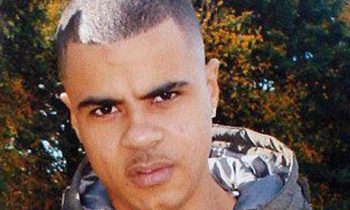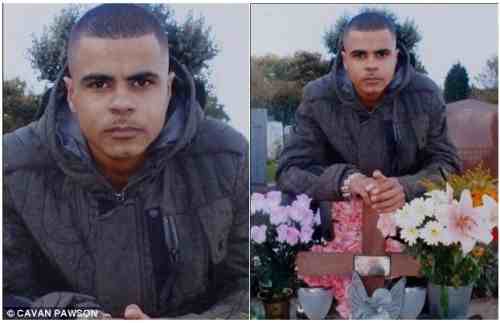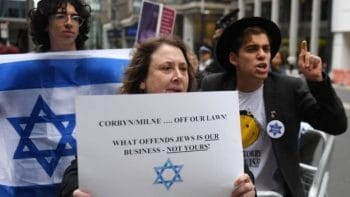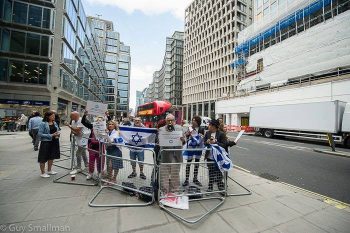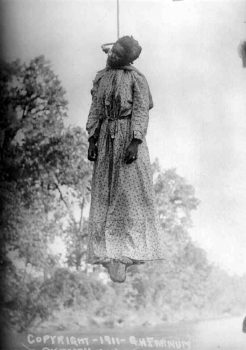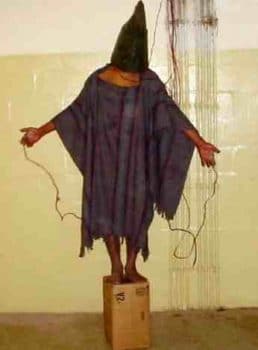In the run up to the 2015 UK General Election, BBC Political Editor Laura Kuenssberg interviewed Labour Leader Jeremy Corbyn and attacked him for his refusal to unequivocally support police shoot-to-kill policies. Corbyn’s position was “I am not happy with a shoot to kill policy in general.… I think that is quite dangerous and I think can often be counter-productive.” In the subsequent edit, Kuenssberg made it seem like this was Corbyn’s response to Paris-type terrorist attacks. Former British Ambassador Craig Murray was at the forefront of critics condemning this “disgraceful piece of lying,” pointing out that even the corporation’s toothless regulator, the BBC Trust, determined that this “breached the broadcaster’s impartiality and accuracy guidelines.”1 Despite the Trust’s adjudication throughout the general election, the BBC’s webpage record of the incident kept the phrase“after the Bataclan attacks in Paris, Mr. Corbyn was asked” and it was never deleted, even when the artificially delayed adjudication was finally posted on the website some two years later in 2017.2
More significantly, however, UK police shoot-to-kill policies almost uniquely target people of color. Kuenssberg is part of a generation of journalists that, for reasons ranging from blatant racism and political bias to amoral careerism, was willing to facilitate potential further Black deaths at the hands of the authorities. This establishment propagandizing of Black deaths is a longstanding, persistent phenomenon.
In 2011, Black Briton Mark Duggan was shot dead by police in highly questionable circumstances. In support of the killing, the British media—including the BBC—featured images of the young Duggan staring back into camera, in what is implied as a stereotypically challenging “gangster” pose.
The original source images were not of Mark Duggan glaring aggressively, but of him grieving at the funeral of his still-born daughter. These images were doctored to give an entirely misleading impression. All the parts of the original photos that might have provided the context of his lost life and humanized him were cut away.
In the immediate aftermath of his death, hundreds gathered for a vigil of remembrance that the BBC refused to cover in a broadcast (though they did feature the subsequent national civil disturbances as manifestations of apparent criminality).3 The killing of Jermaine Baker by police while, his family claim, he was asleep in his car, was similarly excluded from broadcast by news channels. And after the killing of Rashan Charles at the hands of the police, hundreds protested in Hackney, London, only to have their actions again absented by the BBC television news coverage and simply buried on its website.4 These are only a few examples from a long list of dead victims, which also includes Edson De Costa—killed in circumstances similar to Charles—and retired professional soccer player Dalian Atkinson. The hundreds of people of color executed by police are seldom mentioned collectively as manifestations of an ongoing violent institutional phenomenon.5
Similarly, in 2017, Paris was shaken by demonstrations protesting the alleged rape of a Muslim man by a policeman with a baton. It was ten days before BBC News 24 acknowledged the events and, even then, refused to report on the specifics of the allegation. Instead, only a single sentence was offered on the website: “Violence has broken out at a protest in Paris in support of a young black man who was allegedly assaulted by police.”6
In comparison, while hundreds of Black and Muslim protestors were absent from the media, the BBC and mainstream UK media ran the story of a supposedly significant pro-Israel anti-Corbyn protest taking place outside the Labour Party headquarters on September 4, 2018. In reality, the action consisted of just ten all-white protesters—who were therefore easily identifiable as habitual pro-Israel activists and whose previous zealotry had resulted in some of them being charged with assault, still pending at the time of reporting.
The BBC and most of the corporate media used visual imagery composed in tight shots, falsely implying a much larger group of pro-Israel protesters, supposedly amassed outside the limits of the photographic frame. The hundreds attending a simultaneous actual multicultural demonstration in support of Corbyn and Labour were not given the same treatment or prominence in reports.

Simultaneous actual multicultural demonstration. “Pro-Palestine Groups Condemn UK Labour Party’s Anti-Semitism Vote,” Press TV, September 5, 2018.
These racist double standards are constant features of corporate media coverage. Following many years and many racist killings, on October 24, 2018, a white gunman attempted to force entry into a predominantly Black church in Louisville, Kentucky. Upon failing to gain access, he made his way to a local convenience store where he shot—apparently at random—elderly African-American Maurice Stallard, 69, and Vickie Jones, 67. Should there be any doubt as to his motivations, he shouted “whites don’t shoot whites” when he thought a passerby might try to prevent him leaving.
Despite this, the event failed to be reported in most broadcast UK media and was written up as only “a possible hate crime.”7 Mere days later, the virtually same scenario unfolded at a synagogue in Pittsburgh, Pennsylvania, albeit with differences of scale—there were nine more dead than in Louisville, plus six people were wounded. This immediately became the lead story for the BBC and other news outlets, and was from the outset labelled an anti-Semitic attack. While this was an enormous, anti-Semitic tragedy for family, friends, neighbors, and the world, there is no reason that the killing of Black people should be treated any differently, any less catastrophically tragic, simply as business as usual, unworthy of reporting. It is also evident that, compared to instantly accepted claims of anti-Semitism, repeated instances of anti-Black racism—even fatal instances—are always downplayed and treated as dubious. To do otherwise would reveal the systemic nature of Western oppression. As a consequence, there is a constant absenting, paring, and rewording of such events by Western media elites.
At the end of May 2020, the killing of George Floyd by police provoked explosive protests across Britain. The size of the London demonstration forced the BBC News Channel to report on it, but the corporation managed do so without mentioning that it was a Black Lives Matter protest, that it was organized by UK Black Lives Matter, or even mentioning that a Black Lives Matter movement exists. This is not surprising. The BBC even bans its Black staff from publicly supporting Black Lives Matter, despite the fact that the movement is not linked to a political party, nor does it stand candidates in elections.8
In autumn 2016, the term Black Lives Matter disappeared from BBC news broadcasts (though they have a slightly more flexible position in current affairs shows, particularly in celebrity interviews with the likes of Spike Lee, Cornel West, and so on). If visual footage or audio recordings demand it, BBC news presenters would describe demonstrators as holding Black Lives Matter placards or, as in the case of Manchester protesters on May 31, 2020, of chanting “Black Lives Matter.”9 This is therefore represented as an arbitrary spontaneous thing. Obviously, if the BBC admits to there being organized resistance, they would have to concede that it is to systemic oppression. Thankfully, since the May protests, the sheer scale of events is enforcing an erosion of this BBC editorial position.
When the Israel lobby, or representatives of the wider white Zionist diaspora, claim victimization, usually members of their pressure groups are permitted a voice in media coverage. By comparison, even at the time of these protests, there is a continuing reluctance to give a platform to genuine radical Black Lives Matter voices, despite the fact that they are contactable.10
In reference to the protests, the media have also given coverage to Metropolitan Police Commissioner Cressida Dick, without any reference to her discreditable history on issues of race. Dick’s career success is a manifestation of the old British Empire’s “all wogs are the same” ideology. This is sadly still prevalent among British police. For example, in January 2017, elderly, disabled former Police Race Relations advisor Judah Adunbi was tasered in the face while trying to enter his own home by police, who could not tell one Black man from another.11 In Dick’s case, she ordered the street killing of innocent unarmed Brazilian Jean Charles de Menezes. De Menezes was not only not the person they were looking for, but was also of entirely the wrong ethnic group. Dick was subsequently promoted to highest-ranking police position in the country and made a Dame. To summarize, an officer can kill an innocent person of color, be promoted, be given the same ennobled status as Judy Dench and Helen Mirren, and then lecture the public on the appropriateness of Black Lives Matter protests while no one in the corporate media comments on that officer’s past or that Black Britons might find this at all offensive.
Obviously, the corporate media is trying to preserve the status quo and the careers of those at sites of power. But it does beg the question: Why is it so important to limit the revelations that racism is systemic? To answer this, it is necessary to recall the values of the postwar consensus.
Fighting the Second World War resulted in the Nazis reflecting the horror of the eugenics-driven imperial pursuit back to the Western powers. Postwar, a mixture of public sentiment, anticolonial uprisings, and economic practicalities led, in the West, to the beginning of a process of decolonization. India, Kenya, Uganda, Nigeria, and eventually Malaysia and Singapore were taken by its peoples back from Britain; Algeria, Tunisia, Mali, Morocco, and Senegal took their independence from France. According to public sentiment, never again should white Westerners be permitted to conquer and interfere in the evolution of the Black and Brown homelands of the world. This left the world with three oppressive racist white settler colonies—Rhodesia, South Africa, and Israel—that many, particularly on the political left, vowed to amend.
Simultaneously, relations with the United States were under public reconsideration. During the Second World War, white U.S. troops attacked Black GIs, British colonial troops, and colonial technicians. For many British soldiers, their abiding memory of the war was of being in UK dancehalls alongside Black GIs fighting racist white U.S. troops. Britain also had to give refuge—sometimes just temporarily—to prominent Black U.S. dissidents such as Paul Robeson and Muhammad Ali. Black rhythm and blues heroes suffering segregation domestically were welcomed and celebrated by many in the United Kingdom and in France. Malcolm X was invited to speak at the Oxford Union and London School of Economics. There was some awareness of the horrors of FBI policy with regard to the smearing of King and the assassination of Black liberationists in the notorious COINTELPRO project. Overall, sentiment among Labour grassroots demographics during this era ensured that Prime Minister Harold Wilson could not consider following the United States into Vietnam.
Probably the most overt public condemnation of the link between domestic Western racism and that of the imperial conquest of its foreign policy was Muhammad Ali’s refusal to fight in Vietnam:
Why should they ask me to put on a uniform and go ten thousand miles from home and drop bombs and bullets on brown people in Vietnam while so-called Negro people in Louisville are treated like dogs and denied simple human rights?
No, I am not going ten thousand miles from home to help murder and burn another poor nation simply to continue the domination of white slave masters of the darker people the world over. This is the day when such evils must come to an end.… But I have said it once and I will say it again. The real enemy of my people is right here.12
Popular culture reflected these sentiments, as exampled in the peace lyrics of John Lennon and Bob Dylan. From this era, we also have fifty years of Star Trek, which is predicated on a prime directive of not interfering in other regions and cultures.
This grassroots antiracist popular cultural prohibition on white politicians conquering the Black and Brown peoples of the world lasted largely unquestioned until Tony Blair spun an attack by a small group of predominantly Saudia Arabian Sunni Whabbist violent dissidents as a global Muslim conspiracy of “radical Islam and/or “militant Islam.” When, subsequently, white Western politicians’ killing and conquering of Indigenous peoples was treated as a norm by corporate media journalists, it was not long before Zionists—whose ideology was previously defined as form of racism by the United Nations—not only also started to be given a veneer of public respectability, but their antiracist opponents, many of whom were Jewish, were subjected to McCarthyite smears and attacks. Israel now gets away with offenses for which, in decades past, at least some sections of the media were willing to condemn in Rhodesia and apartheid South Africa.
Put simply, we in the West are regressing. The white slave masters Muhammad Ali referred to are on the march once more. Western elites are now in league with people, federal institutions like the FBI, and forces of colonial apartheid that much of their populations previously despised as racist. In terms of continuity between domestic racial oppression and foreign policy, U.S. interrogation and torture techniques now resemble the county’s historic lynching practices, as demonstrated by any Internet image search comparing the U.S. Lynching Postcard with U.S. Abu Ghraib human trophy photography.
These and other offenses all have to be spun as civilizing Westerners doing Black and Indigenous peoples a favor. To ensure this massive cultural reboot is enforced, the Joseph Goebbels, Lord Haw-Haws, of the modern corporate media, have had to attempt to efface systemic racial oppression from representation in order to fake white Western benevolence.
Notes
- ↩ Craig Murray, “BBC Daily Distortion,” Craig Murray blog, January 30, 2017, craigmurray.org.uk; Jane Martinson, “BBC Trust Says Laura Kuenssberg Report on Corbyn Was Inaccurate,” Guardian, January 18, 2017.
- ↩ “Jeremy Corbyn Opposes ‘Shoot to Kill’ Policy,” BBC News, November 16, 2015.
- ↩ “Vigil Draws Hundreds Over Mark Duggan’s Death,” Youtube video, Al Jazeera English, January 11, 2014.
- ↩ “Violence Erupts in London’s Hackney at Protest Over Black Man’s Death During Arrest,” RT, July 29, 2017; “London Protests Erupt Over Death of Rashan Charles,” Al Jazeera, July 29, 2017.
- ↩ Black deaths also include a long historical tradition of victims beaten to death by police in cells and on the street, as documented in Ken Fero and Tariq Mehmood’s 2001 documentary Injustice.
- ↩ “Protests in France Over Alleged Police Rape,” BBC News, February 12, 2017.
- ↩ “’Whites Don’t Shoot Whites’: 2 Black People Shot Dead in Kentucky,” Times of News, October 26, 2018.
- ↩ According to the Huffington Post, “morale is also said to be at an ‘all-time low’ among Black BBC staff who were banned from publicly supporting Black Lives Matter but watched on as their employer defended its use of the N-word.” Nadine White, “MPs Call For Inquiry Into BBC After ‘Institutional Racism’ Allegations,” Huffington Post, September 13, 2020.
- ↩ “George Floyd Death: Thousands Join UK Protests,” BBC News, May 31, 2020.
- ↩ Black Lives Matter—London, Facebook page.
- ↩ “British Police Tasered Their Own Race Relations Advisor…,” Youtube video, posted by BlackWorldTV, January 21, 2017; Matt Agorist, “Watch: Cop Tasers Fellow Coworker in the Face, After Mistaking Him for a Criminal,” Free Thought Project, September 6, 2018.
- ↩ “Muhammad Ali Refuses to Fight in Vietnam (1967),” Alpha History.

